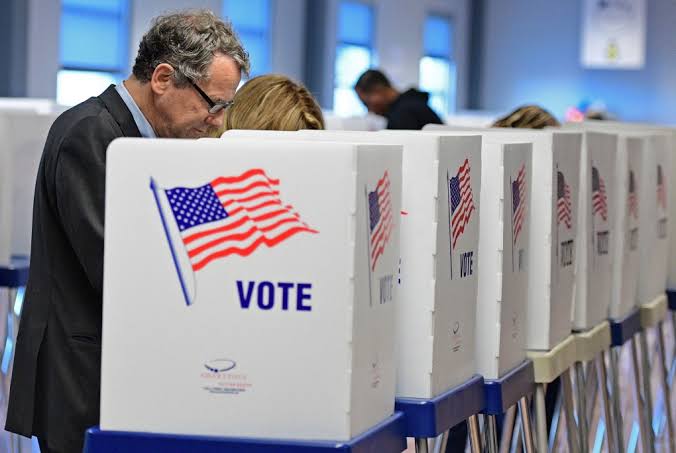
AI in the Voting Booth: Navigating the Digital Future of Democracy
On the brink of the 2024 elections, the battlegrounds of democracy are under siege, not by soldiers or physical might, but by an invisible force: Artificial Intelligence (AI). This silent warrior, wielding the double-edged sword of technological prowess, stands at the forefront of a digital revolution, challenging the very essence of free will and democratic integrity. With the power to both fortify and fracture the foundations of democratic societies, AI’s role in the upcoming elections is a paradox wrapped in a digital enigma, casting a long shadow over the future of electoral engagement and the sanctity of the voting booth.
AI as a Catalyst for Democratic Engagement
The transformative power of AI in political campaigns has been increasingly recognized. With sophisticated data analytics, AI enables a hyper-personalized approach to voter engagement, allowing campaigns to communicate with voters on an unprecedentedly individual level. This personal touch can invigorate the democratic process by making political messages more relevant to each voter’s concerns and priorities, potentially increasing voter turnout and engagement. The ability to process and analyze vast amounts of data in real-time means that campaigns can adjust their strategies swiftly, responding to emerging trends and voter sentiments with agility.
The transformative power of AI in political campaigns has been increasingly recognized. With sophisticated data analytics, AI enables a hyper-personalized approach to voter engagement, allowing campaigns to communicate with voters on an unprecedentedly individual level.
However, the efficiency of AI in parsing voter data also introduces risks. The fine line between personalized campaigning and intrusive voter manipulation becomes blurred. Ensuring that the use of AI respects voter privacy and adheres to ethical standards is paramount. The European Union’s GDPR has set a precedent, but global standards are still in development. It’s essential that other nations follow suit, crafting regulations that balance innovation with individual rights.
The Dark Side of AI: The Battle Against Disinformation
The capacity of AI to generate and spread disinformation has been one of the most controversial aspects of its integration into the electoral process. The incidents in the 2016 U.S. Presidential Election and the Brexit referendum underscore the high stakes involved. AI-driven bots and algorithms can amplify false narratives across social media platforms with alarming speed and scale, reaching vast audiences and potentially swaying public opinion based on falsehoods.
The sophistication of ‘deepfake’ technology, an offshoot of AI, further complicates the landscape. These hyper-realistic falsified videos and audio recordings can undermine trust in the political discourse, making it increasingly difficult for voters to discern truth from manipulation. The challenge lies in developing AI detection tools that can keep pace with the rapidly evolving capabilities of deepfake technology.
A Collaborative Defense: Tech Industry and Regulatory Response
The response to AI’s potential for electoral interference has been robust, spearheaded by tech industry initiatives and regulatory reforms. The “Tech Accord to Combat Deceptive Use of AI in 2024 Elections” represents a significant commitment from the tech community to ethical AI practices. By developing advanced detection algorithms and committing to transparency, these companies are at the forefront of the fight against AI-generated disinformation.
Regulatory measures are equally crucial. Beyond the GDPR, there’s a growing recognition of the need for global standards that govern the use of AI in elections. These regulations must address the generation and spread of disinformation, ensuring accountability for tech companies and political campaigns alike. Moreover, international cooperation is vital, as the digital realm transcends national boundaries, necessitating a concerted global effort to safeguard democratic processes.
Educating the Electorate: Building Digital Literacy
A cornerstone of defending against AI’s adverse impacts is enhancing digital literacy among the electorate. Empowering voters to critically assess online content and recognize disinformation is fundamental. Educational campaigns, spearheaded by both public and private sectors, aim to equip citizens with the tools they need to navigate the digital information landscape thoughtfully.
Looking Ahead: Safeguarding Democracy in the Age of AI
As we approach the 2024 elections, the measures taken to mitigate the risks associated with AI in the electoral process offer a beacon of hope. From tech industry initiatives to regulatory reforms and public education campaigns, a multi-faceted defense strategy is emerging. Yet, the dynamic nature of AI technology demands continuous vigilance. Ongoing innovation in AI detection tools, coupled with international collaboration and robust regulatory frameworks, will be critical in ensuring the integrity of future elections.
In the balance between leveraging AI’s potential for positive engagement and guarding against its risks, lies the future of democracy. As the global community prepares for the 2024 elections, the lessons learned and the proactive steps taken will be instrumental in navigating this complex terrain. The collective commitment to upholding democratic integrity in the face of technological advancement underscores a universal aspiration: to foster elections that are both free and fair, truly reflecting the will of the people in an age dominated by digital innovation.
_________________________
Aric Jabari is a Sixteenth Council Fellow based in South Africa



